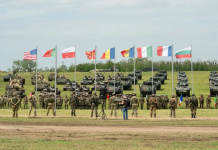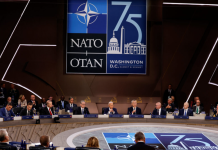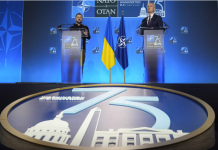Quantum technologies are getting closer to revolutionizing the world of innovation and can be game-changers for security, including modern warfare. Ensuring that the Alliance is ”quantum-ready” is the aim of NATO’s first-ever quantum strategy which was approved by NATO Foreign Ministers on 28 November. On Wednesday (17 January 2024), NATO released a summary of the strategy.
Many of these technologies are already used in the private sector and have become the subject of strategic competition. NATO’s quantum strategy helps foster and guide NATO’s cooperation with industry to develop a transatlantic quantum technologies ecosystem, while preparing NATO to defend itself against the malicious use of quantum technologies.
Quantum is one of the technological areas that NATO Allies have prioritized due to their implications for defence and security. These include artificial intelligence, data and computing, autonomy, biotechnology and human enhancements, hypersonic technologies, energy and propulsion, novel materials, next-generation communications networks and space.
Quantum technologies are already part of NATO’s innovation efforts. Six of the 44 companies selected to join NATO’s Defence Innovation Accelerator for the North Atlantic (DIANA)’s programme are specialised in quantum. Their innovations are expected to help progress in the areas of next-generation cryptography, develop high-speed lasers to improve satellite connectivity, and deploy quantum-enhanced 3-D imaging sensors in challenging undersea environments. DIANA also anticipates quantum technologies forming a key part of solutions to its future challenge programme.
Building on its new strategy, NATO will now start work to establish a Transatlantic Quantum Community to engage with government, industry and academia from across the innovation ecosystems.





